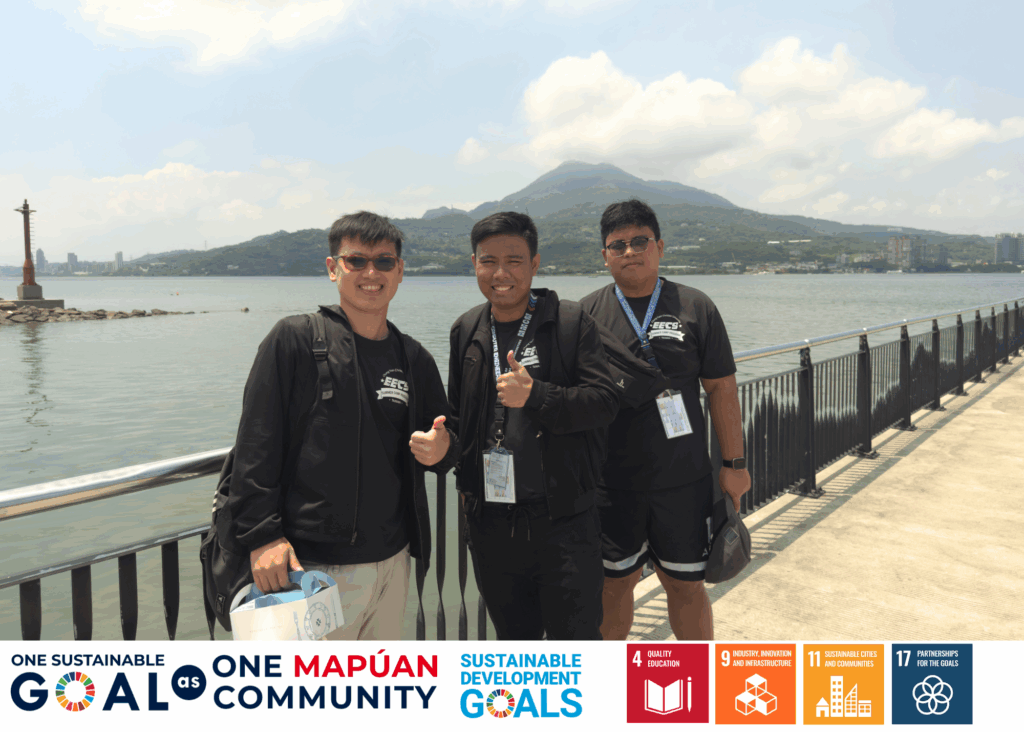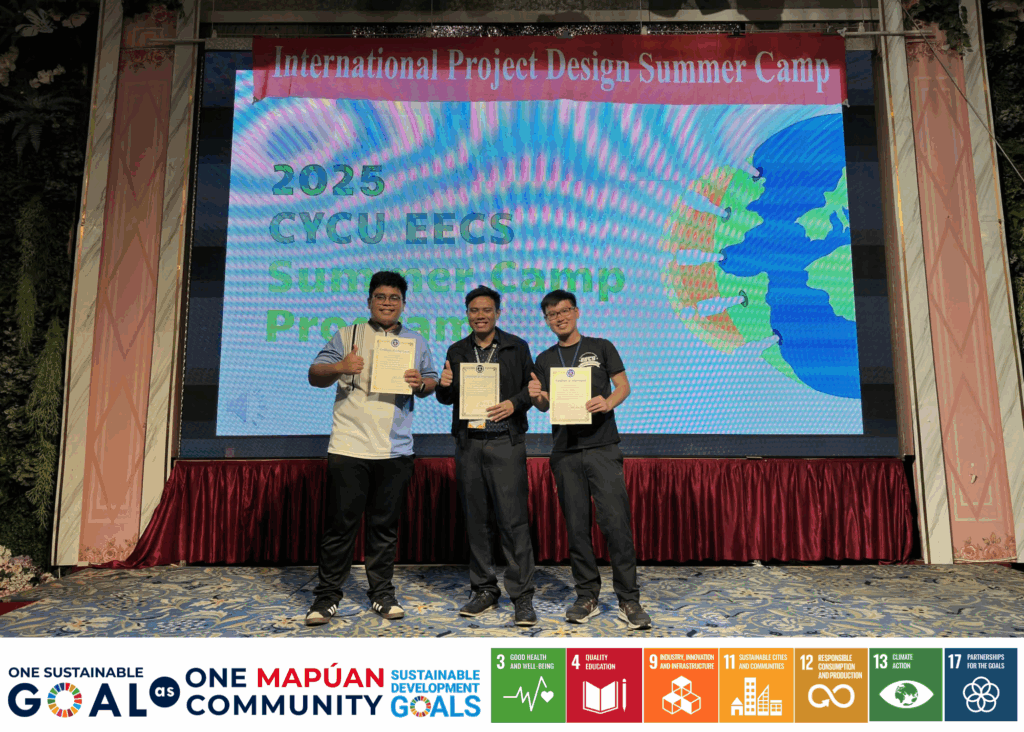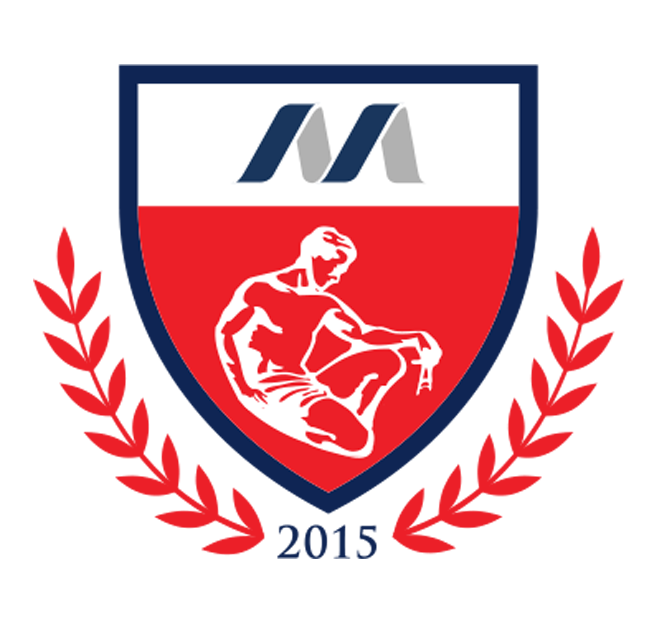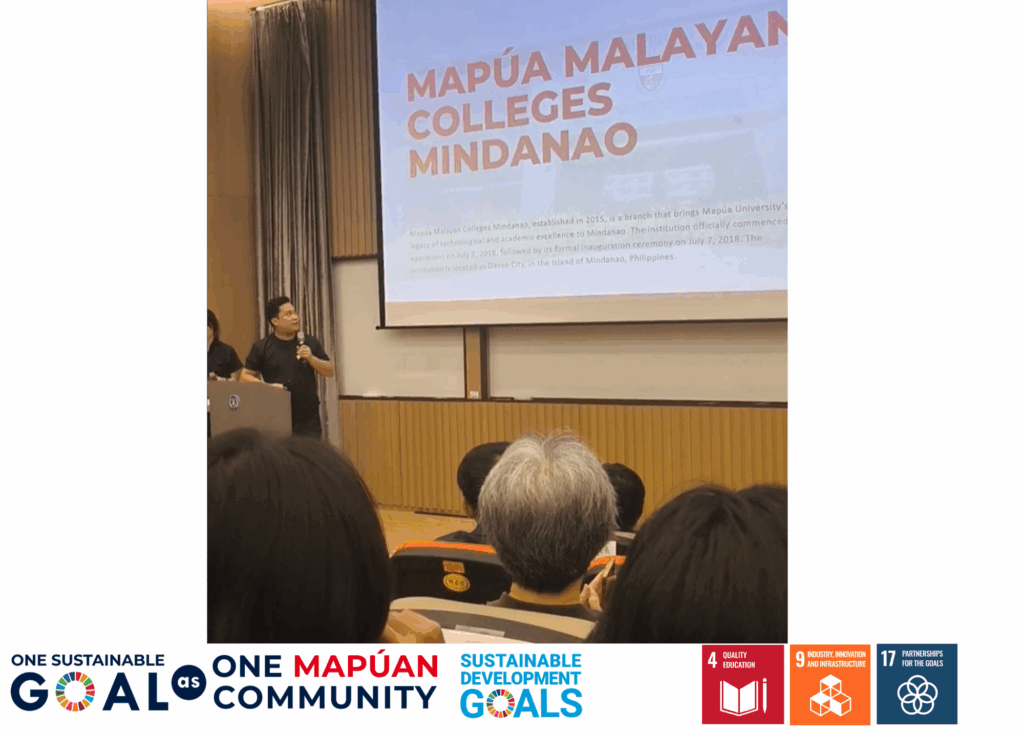Dean Michael Calamba of the Mapúa MCM College of Engineering and Architecture presenting about the school during the Opening Ceremony of CYCU EECS International Project Design Summer Camp 2025.
Mapúa Malayan Colleges Mindanao (Mapúa MCM) proudly joined the Chung Yuan Christian University Electrical Engineering and Computer Science (CYCU EECS) International Project Design Summer Camp 2025, held from July 31 to August 20, 2025 at CYCU in Chung Li, Taiwan.
The camp, hosted by CYCU’s College of Electrical Engineering and Computer Science, brought together student and faculty delegates from Japan’s Kansai University and Tokyo Denki University, South Korea’s Sungkyunkwan University, and the Philippines’ University of Santo Tomas, Mapúa University, and Mapúa MCM.
During Dean Michael Calamba’s presentation about Mapúa MCM, he stated, “The CYCU camp features a diverse delegate with different stories yet to unfold. Upon seeing them, the roster of faculty mentors and industry partners, I am deeply honored and delighted to be a part of this camp along with the Mapúa MCM students. Stepping in this international platform opens a valuable opportunity for the students to engage, learn, and collaborate with international peers. Also, as observed, the students are well-equipped, as they were able to compete confidently and on par with their international counterparts. More so, this opportunity is truly valuable as it fosters collaboration and competition on an international level.”

Mapúa MCM students Ralph Edcel Fabian, Louis Raphael Lagare, and Kenn William Ko on their field trip at the Tamsui Old Street.
Designed to strengthen both hard and soft skills vital to engineering and computer science careers, the program also gave participants opportunities to engage in Taiwan’s cultural and educational landscape. Highlights included a Mandarin course for cultural appreciation, field trips to Old Jiufen Street and Tamsui Old Street, and group project presentations addressing themes in sustainability, health, and technology.
When asked about the sightseeing experience, Kenn William Ko—one of the Mapúa MCM students—shared that food in Taiwan was prepared in almost the same way that his mother did. To quote, “I feel at home, and you get free tea at almost every restaurant.” Meanwhile, Ralph Edcel Fabian—another Mapúa MCM student—was amazed by the sights and culture as they explored the city. According to him, “I was also impressed by their efficient transport systems, strict waste segregation, and strong sense of punctuality.”
Mapúa MCM was represented at the Opening Ceremony on August 1 by Engr. Michael G. Calamba, Dean of the College of Engineering and Architecture, who presented the institution’s commitment to academic excellence and global relevance.
The camp culminated on August 20, 2025, with the Closing Ceremony and Awarding, where Mapúa MCM students distinguished themselves among 19 participating groups.

Mapúa MCM students Ralph Edcel Fabian, Louis Raphael Lagare, and Kenn William Ko received their certificates of achievement at the closing ceremony.
Kenn William Ko, Mapúa MCM Electronics Engineering student, and his group won the Gold Award for their project “Navigating Environmental Sustainability: A Smart Waste Sorting System.”
Meanwhile, Ralph Edcel Fabian and Louis Raphael Lagare, Mapúa MCM Computer Engineering students, together with their group, earned the Bronze Award for their project “Voice-Responsive System Design for Key Parameters Sensing and Processing Used in Risk Assessment on Kidney Stone Formation.”
The experience during the summer camp allowed the students to explore and be exposed to new ideas. To quote Louis Raphael Lagare, one of the Mapúa MCM students, “I’ve gained good ideas for research.”
The CYCU EECS Summer Camp 2025 contributes to several United Nations Sustainable Development Goals (SDGs). It promotes SDG 3 – Good Health and Well-Being through innovative projects addressing health challenges. It supports SDG 4 – Quality Education by equipping students with advanced training and opportunities for intercultural learning. It advances SDG 9 – Industry, Innovation, and Infrastructure and SDG 12 – Responsible Consumption and Production through technology-driven projects that highlight sustainability and efficient resource use. It also contributes to SDG 13 – Climate Action by encouraging environmental responsibility in engineering solutions. Finally, it exemplifies SDG 17 – Partnerships for the Goals by fostering collaboration among universities in Taiwan, Japan, South Korea, and the Philippines to drive innovation and shared learning.


